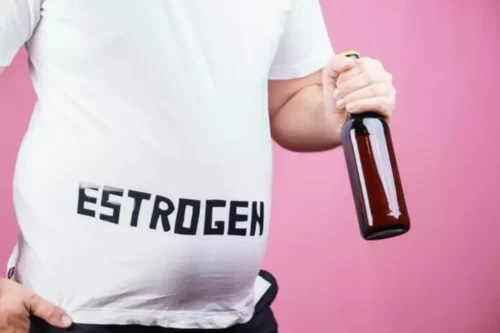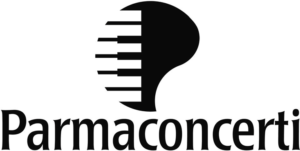Is it normal to sweat after drinking alcohol? Read 7 causes of it

Due to the hangover inducing a fight-or-flight response, hot flashes may occur while you are drunk and feeling hungover. People experiencing alcohol withdrawal relating to alcohol dependency should consider seeking urgent medical attention. A doctor can provide information and guidance on how to avoid alcohol. Alcoholic beverages may contain a lot of sugar and this causes a sudden increase in blood sugar levels.
- If you’re physically dependent on alcohol, sudden withdrawal can result in night sweats.
- Alcohol-related liver disease also does not usually cause symptoms until the liver is severely damaged.
- Yep, certain foods that you put on your plate can make your temperature soar and produce perspiration.
- In others, the cause may be obvious and potentially treatable, as can happen with cases of secondary hyperhidrosis.
Salty Food
You may have minor symptoms that come and go or you drinking and sweating may have constant symptoms that have an impact on your day-to-day activities. You may wonder how much sweat per day is “normal.” There’s no true normal because everyone sweats at their own rate. Individuals should be prepared to be uncomfortable during this period and have medical help available if needed. This is the period in which delirium tremens is most likely to occur, which requires immediate medical attention. Delirium tremens is a medical emergency that can result in death.

Night sweats and alcohol withdrawal
Medically-supervised detox is crucial for managing alcohol withdrawal safely. Treatment involves medications like benzodiazepines to ease symptoms like sweating while monitoring vital signs. Counseling and therapies then address the psychological addiction for lasting recovery. Night sweats are one of the most common symptoms during alcohol withdrawal. They often start within 6-12 hours after your last drink and can last up to 4-5 days or longer.
- When alcohol intake stops abruptly, the brain floods with stress hormones like norepinephrine, activating the fight-or-flight response and causing symptoms like shakiness, anxiety and profuse sweating.
- So if you lost two pounds during exercise, you should aim to drink 32 ounces of fluid.
- These effects can contribute to night sweats, as our bodies attempt to regulate our temperature and maintain proper hydration levels during sleep.
- Through the Nix Biosensor app, you’ll get notifications during exercise when you should take sips of your sports drink.
- For most people, alcohol withdrawal symptoms will begin sometime in the first eight hours after their final drink.
- You may experience sweating at random times of the day when there isn’t something like an activity or emotion causing your glands to produce sweat.
Best Levoit air purifiers: 6 top choices for healthier air at home
To help determine the potential underlying cause, your doctor will consider where you have your symptoms. The condition causes sweating even when you eat something cold, like ice cream. One of the best ways to avoid a sweating episode is to identify the triggers that set them off (such as caffeine or nicotine). If you are unsure of the cause, keep a “sweat diary” to record what you were doing when an episode occurred. With that being said, the diversity of symptoms suggests that there may be a variety of genetic causes.

- This medication is often prescribed in addition to other medications to manage your condition.
- You may find yourself changing your routine to hide your symptoms from others.
- However, there are ways that you can help reduce its intensity and the discomfort it may cause.
Some foods and drinks are known to cause sweating while eating. One of the most common known causes of excessive sweating is a history of head and neck surgery, especially surgery to remove a parotid gland in the head. “Gustatory sweating,” as it’s medically referred to, is a symptom of a condition doctors call Frey syndrome.
- Generally speaking, if the underlying condition is resolved or managed, the symptoms of hyperhidrosis will correct themselves.
- While most antiperspirants are equally effective, unscented ones may be less irritating to people with sensitive skin or who are prone to contact dermatitis.
- If you are experiencing alcohol poisoning, you will need emergency medical help.
- This article covers the reasons you may sweat a lot, how to tell if you’re sweating too much, and when to see a healthcare provider.
- Other conditions may require chronic medications, surgery, or more extensive lifestyle changes.
- The messages may become “mixed up,” resulting in sweating instead of salivating, or sweating in addition to salivating.
Night sweats can generally be described as unusual or excessive sweating during the night hours. If you or a loved one is experiencing night sweats during or after detox programs, consider seeking an alcohol rehab program or medical provider for further guidance. Occasionally, alcohol-induced night sweats can be due to alcohol intolerance. When your body has this mutation, it can’t produce the enzymes that break down the toxins in alcohol. Alcohol affects the central nervous system, the circulatory system, and virtually every part of your body.
Hyperhidrosis
For people at low risk of complications, an office visit to your primary care provider, along with at-home monitoring and virtual office visits, may suffice. People at high risk of complications should enter a short-term in-patient detox program. People who drink daily or almost every day should not be left alone for the first few days after stopping alcohol. Withdrawal symptoms can quickly go from a bad hangover to a serious medical situation. For people who experience hallucinations as part of alcohol withdrawal, these may begin in the 12- to 24-hour time frame. When that person cuts out alcohol, there is a period when their brain hasn’t yet received the message and still overproduces the stimulating chemicals.

This is alcohol withdrawal, and it causes uncomfortable physical and emotional symptoms. Hyperhidrosis can be classified by the parts of the body affected as well as the underlying cause of the excessive sweating. The sweat glands, also known as sudoriferous or sudoriparous glands, are located throughout the human body, the number of which can vary from one person to the next. Post-workout, you should rehydrate by consuming at least 16 to 20 ounces of water or fluid for every pound of body weight lost during exercise. See your doctor if you’re not sure what’s causing your night sweats or if you have accompanying symptoms. Getting night sweats from alcohol consumption may indicate symptoms of a drinking problem.


